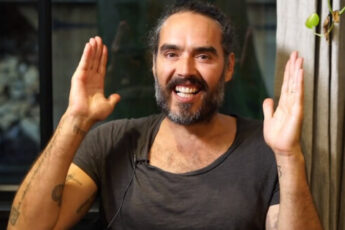
WHEN NOT TO GIVE YOUR ISLAMIC REMINDERS…
These are all true, necessary, and profound realities. However, they often do not hit the mark, and their delivery may actually cause more harm than good.
- When a woman is reeling from her infant child being diagnosed with terminal cancer, it is likely not the time to ‘remind’ her that her child will be waiting for her in Paradise.
- When a man has just buried his wife, now may not be the time to remind him that Allāh always replaces what He takes with that which is better.
- When a woman faces an uncertain future with her husband being imprisoned, she may not want to hear that some of the greatest men in Islamic history were raised without their fathers.
Why? Because for Islamic reminders to have their intended impact, the listener must first have the capacity to absorb them.
Carefully consider both the content and the order of events of the following excerpt, which describes the heart-breaking incident in the life of the Prophet Muhammad (sall Allāhu ‘alayhi wa sallam) when he learned of the death of his beloved infant son Ibrahim:
“He was so shocked at the news that he felt his knees could no longer carry him and asked his companion to give him his hand to lean upon. He proceeded immediately to the orchard and arrived in time to bid farewell to an infant dying in his mother’s lap. Prophet Muhammad took the child and laid him in his own lap with shaking hands. His heart was torn apart by the new tragedy, and his face mirrored his inner pain. Choking with sorrow, he said to his son, “O Ibrahim, against the judgement of God, we cannot avail you a thing,” and then fell silent. Tears flowed from his eyes. The child lapsed gradually, and his mother and aunt watched and cried incessantly, but the Prophet never ordered them to stop. As Ibrahim surrendered to death, Prophet Muhammad’s hope, which had consoled him for a brief while, completely crumbled. With tears in his eyes, he talked once more to the dead child: “O Ibrahim, were the truth not certain that the last of us will join the first, we would have mourned you even more than we do now.” A moment later he said: “The eyes send their tears and the heart is saddened, but we do not say anything except that which pleases our Lord. Indeed, O Ibrahim, we are bereaved by your departure from us.”
From this, we learn:
The Prophet felt the full force of the wave of emotions that hits us during grief, from the shock to the trauma to the heartbreak. The intensity of emotions manifested themselves in him physically.
He did not police the emotions of others at a time when the hearts need time to grieve. He allowed the mother and aunt of his son to fully release their feelings through unrestrained tears.
He spoke directly to the dead child in his arms, knowing full well the infant had passed away, in order to express the lingering sentiment in his heart that needed to be verbalised.
While outwardly verbalising his heartbreak, he gave a candid and reassuring message to place the loss of his child in the “big picture” of life, death, and the will of God. This was a reminder essential to vocalise even while knowing the heart may take time to accept it fully.
Now, consider the following points:
- At the first strike of calamity, sabr is the optimum response of the believer.
- As per the authentic hadith, when a child dies in infancy, they will drag their mother to Paradise with them.
- Nothing in this life was ever ‘ours’ – everything is a temporary loan from Allāh.
All of these points are true and quite beautiful, however, none of these points were spoken to the grieving parties in this situation.
Part of the perfection of the character of the Prophet (sall Allāhu ‘alayhi wa sallam) was that nothing he said or did was incidental. He did not omit these true points from forgetfulness or from being overcome emotionally. Every moment of his life was a teaching one. Even in the height of his crushing grief, he was delivering profound and impactful lessons to us all. He was always exemplary and part of that was being fully human.
When may people just not be ready to take in your Islamic reminders?
When the pain or shock is simply too raw
At the height of an emotional and testing trial, the intensity of the pain one feels can be immobilising. Anguish and shock can trigger extreme mental and physical reactions, rendering the person unable to process, rationalise, or reason through any of it. When somebody you care about is in that state, be with them. Allow them to express their pain as it comes. There is nothing blameworthy or shameful in feeling open heartbreak and expressing it. Allāh has created us as impassioned, living, breathing, and sentient human beings with the full spectrum of human emotion. Though there are of course conditions on what we can express (even then, very limited ones), we are not expected to be rigid auto-bots where “Islamic reminder input = optimum response output”.
Their imān is too weak or fragile right now
If we have family and friends who are struggling with their faith, or are not practising it, or are completely alienated by Islam or Muslims, then this needs to be taken into consideration when delivering words of comfort from an Islamic perspective. Many people have complicated relationships with their faith for a myriad of personal reasons. What is a routine reminder to you can be an explosive trigger for others. Be cautious: if you are perceived as just another religious person reeling off verses like a robot, rather than a relatable empathic human being, then you risk pushing an already-distant person even further from the dīn.
When you are dealing with people whom you know are actively struggling with their faith, make sure you connect with them on a human level first. Any seeds of Islamic comfort you hope to plant cannot flourish if the soil has not been cultivated first.
They have trauma that needs professional support
Sometimes, the scars of certain life events run far deeper than the recognisable stages of grief and healing. Complex and historical trauma needs to be carefully worked through by somebody who is professionally trained. Serious trauma – which the person may be oblivious to – renders one unable to comprehend the situation or take in your ‘reminders’ in the way you hope. This may be the case even for people who have suffered trauma many years ago and whose festering pain is now being pushed to the surface. Humans are complex. The better you understand what is going on in that person’s current mind frame, the better you can support them during their greatest hardships.
The iceberg analogy is often used to describe the depth of human psychology, particularly when it comes to what is visible publicly versus the colossal extent of what is hidden under the surface. Fears, hope, personal history, motives, desires, experiences, and our greatest formative experiences remain in the realm of ‘what we conceal’, hidden from view.
Coming face to face with Wahshi ibn Harb
Again, we need look no further than the Sīrah for an example of complete and utter humanity when dealing with the lingering effects of severe emotional injury. After successfully killing and then mutilating the beloved body of the great warrior and uncle of the Prophet, Hamza ibn Abdul Muttalib (raḍiy Allāhu ʿanhu), the spear-thrower Wahshi ibn Harb embraced Islam. Wahshi approached the Prophet (sall Allāhu ‘alayhi wa sallam) to declare the shahādah. Some accounts say that the Prophet (sall Allāhu ‘alayhi wa sallam) could not look him in the face – even after his declaration of faith – for the intense pain of what Wahshi did to his uncle.
The incident is described in Ibn Ishaq and Ibn Hisham’s Al-Sīrah Al-Nabawiyyah as follows (told through the narrative of Wahshi himself):
It is explained by Islamic scholars that the reason for Wahshi avoiding Muhammad was not out of continued anger against Wahshi, but in case Wahshi interpreted a look on the face of Muhammad as anger for him, which would make him distraught.
Wahshi says:
“So long as Muhammad was alive, I kept myself hidden from him. After his death, the battle with Musaylimah took place. I joined the army of Islam and used the same weapon against Musaylimah and succeeded in killing him with the help of one of the Ansar. If I killed the best of men (Hamza ibn Abd al-Muttalib) with this weapon, the worst man, too, did not escape its terror.”
As the most emotionally intelligent of all humans, the Prophet (sall Allāhu ‘alayhi wa sallam) could give Wahshi his ‘rights’ as a believer. Yet his heart was never able to overcome the ever-living pain of what Wahshi had done, despite the event occurring before Wahshi embracing Islam. This is the fragility of the human condition, and nobody is exempt from it.
A lesson from the Mother of the Believers
In the well-known incident of the ‘Ifk’, the household of the Prophet (sall Allāhu ʿalayhi wa sallam) and the trust of the entire community was at risk. The young wife of the Prophet, ʿĀ’isha, was the subject of crushing, false rumours created by the enemies of the Prophet.
When she found out about the lies spreading about her, she became inconsolable with grief. She wept through the entire night and continued to weep through the entire day. Her parents feared that her liver would burst from the intensity of her weeping. When the Prophet (sall Allāhu ʿalayhi wa sallam) questioned her, out of his justice as a leader, she was so overwhelmed that she responded with the call to patience of the Prophet Yaʿqūb, referring to him only as Yūsuf’s father, having forgotten his name in her state of trauma.
She said:
With her marriage, honour, identity and entire life as a believer at stake, ʿĀ’isha (radiyaAllāhu ʿanha) was in a state of utter pain, hurt and betrayal by her community. She openly allowed her emotional response to flow and was never chastised for this. Those who entered to comfort her, the unnamed Ansari woman, simply stayed and wept with her. It was enough. Everybody knew and felt the gravity of the situation acutely, and this matter was beyond words. That moment of connection simply through crying with ʿĀ’isha (radiyaAllāhu ʿanha) was the most powerful expression of empathy possible at that moment.
Remain conscious of yourself at all times
There have been times when rehearsed words of comfort invoking Qur’ān and Hadith are casually tossed out by those who may well crumble if placed in the same trial. Before speaking, take a moment to consider and internalise what your own mental and possible spiritual state would be if you were in the position of the one aggrieved. Temper your advice accordingly. Use the experience to express gratitude for not being tested in the same way. Be humble when recognising the severe test faced by the person in front of you.
Be cautious of feeling irritated if your Islamic reminders do not hit the spot, or are brushed off, ignored, or outright challenged. If you find yourself taking personal offence if any of these things happen, then it may well be a good time to revisit your intentions and attempt to purify and renew them. If you feel you have judged the necessity of your reminder well and have delivered it in the most sensitive and empathic way possible, yet it is still met with resistance, then Alhamdu lillāh, your intention is rewarded regardless, and you can continue to support the afflicted person in other ways.
A Final Word
Words are incredibly powerful. Human pain is hugely sensitive, and sometimes people’s relationship with their own faith can be complex and fragile. There is a subtle art to being able to deliver the right words of comfort a person needs and recognising when it is wiser to stay silent altogether.
Being careful of when to give your Islamic reminders does not mean being ashamed or doubting the truth of them. It is instead recognising the many layers that make up a human being and treading with caution when approaching someone experiencing a life-changing trial. The power of empathy is an incredible thing. Like so many times in life, meaningful connections are not made through eloquent language or powerful declarations, but simple, sincere, and honest human interactions, like the unnamed Ansari woman who simply came to cry with ʿĀ’isha (radiyAllāhu ʿanha). Laying that vital foundation first can In shā Allāh be the basis on which future reminders may penetrate the heart. Until then, a little bit of human empathy may be all it takes to provide a world full of comfort.
Notes:
(1) https://www.islamweb.net/en/fatwa/321967/the-incident-of-ifk-slander-in-detail
This article originally appeared here.



